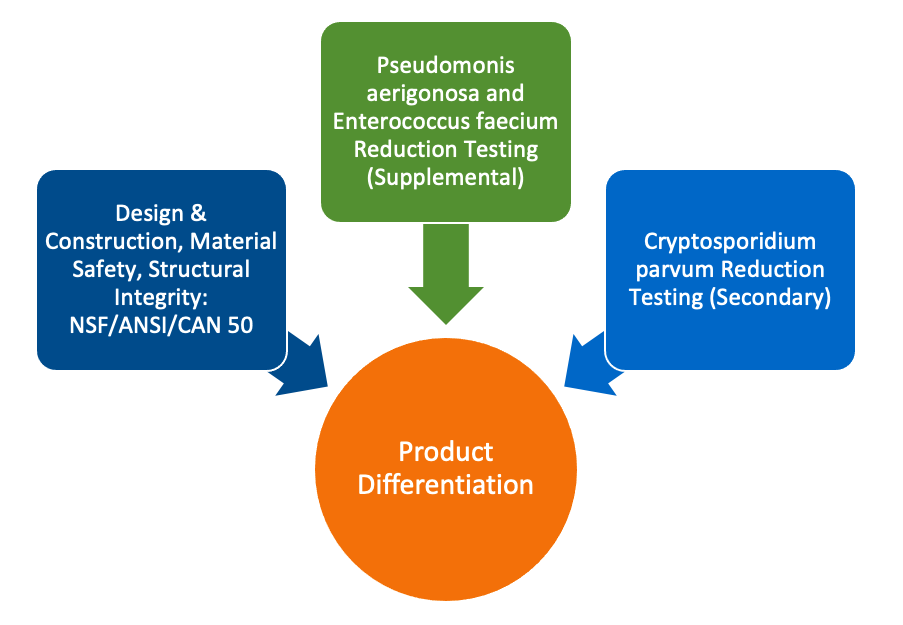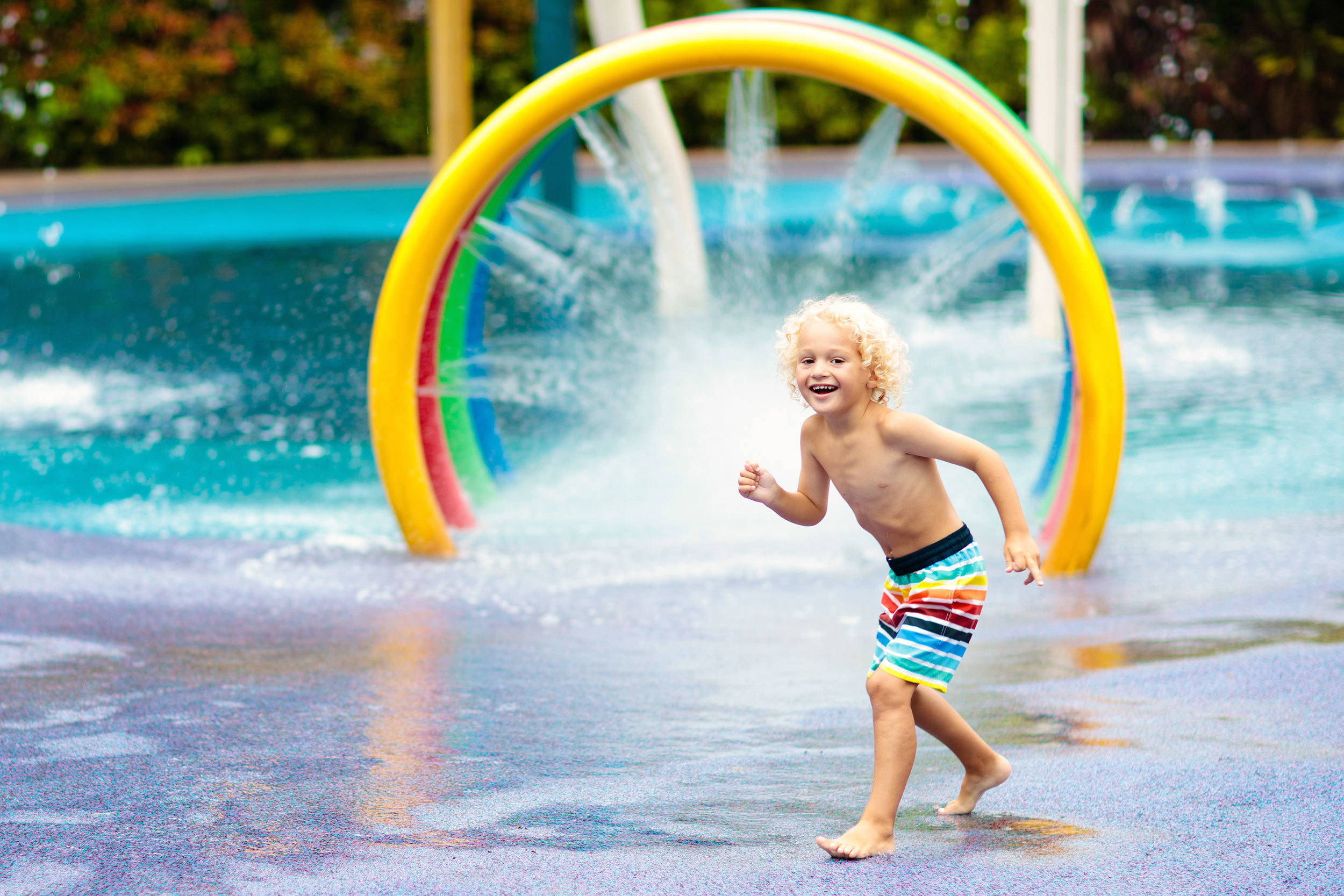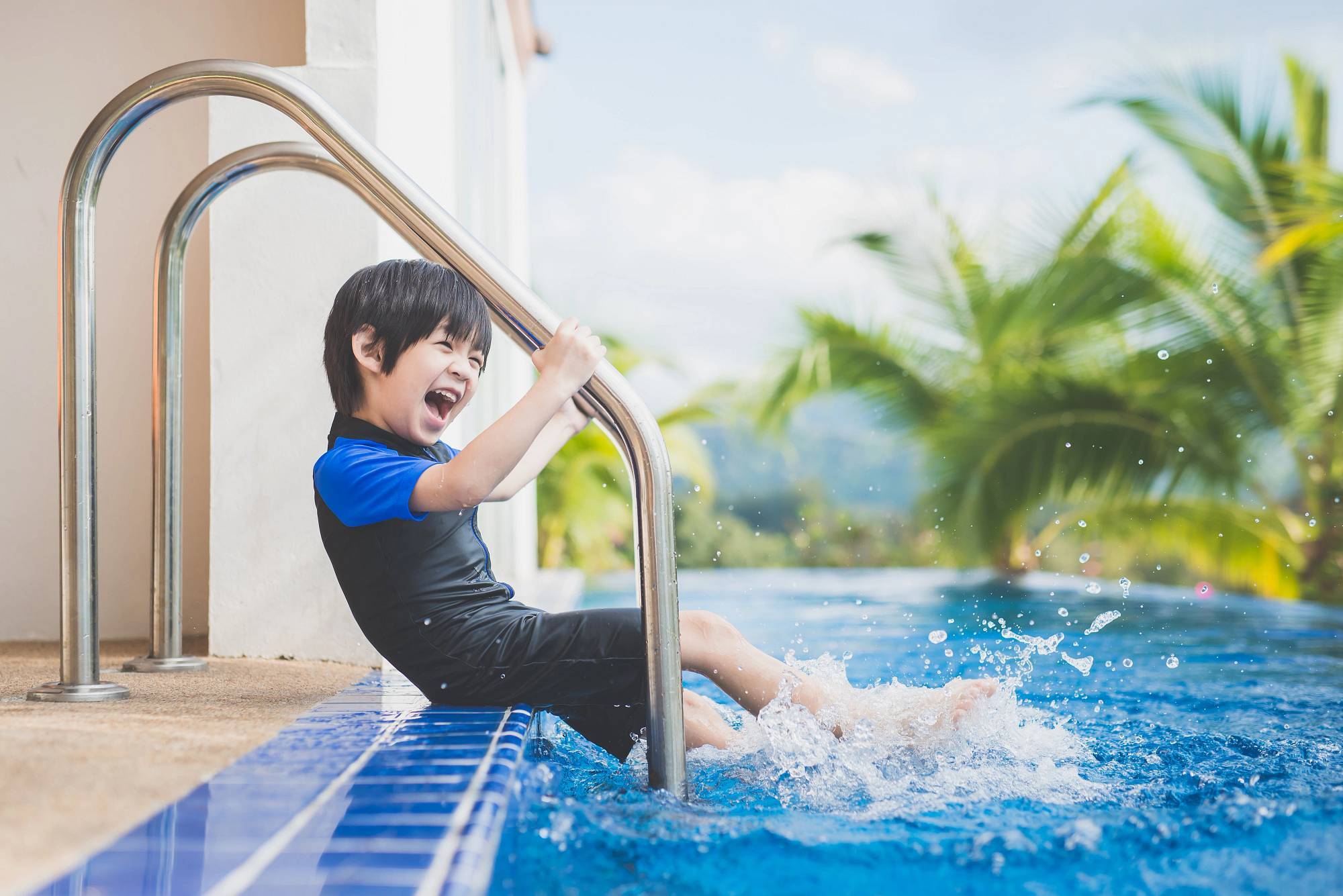Disease Outbreaks in Recreational Water Drive Demand for Testing

NSF/ANSI/CAN 50 Certification
As a world leader in testing and certification for recreational water products, NSF was one of the first to publish an American National Standard to address the health effects of pool and spa treatment chemicals and equipment.
Our experts can help your business obtain NSF/ANSI/CAN 50 certification of your equipment, including UV and other disinfection equipment, to help meet the product acceptance criteria laid out in the Model Aquatic Health Code (MAHC) and many state and local pool codes.
Disinfection Efficacy Testing
NSF/ANSI/CAN 50 outlines specific performance criteria (which is defined by product type), and manufacturers must pass this product testing to obtain certification to the standard. In addition to this baseline testing, there is also microbiological testing of disinfection equipment for a range of bacteria, depending on whether the equipment is claiming use for supplemental or secondary disinfection.
The demand for products that demonstrate disinfection efficacy against viruses and bacteria continues to rise, as there were 208 U.S.-based outbreaks — involving multiple cases each — reported to the Centers for Disease Control and Prevention from 2015-19, all stemming from six common bacteria and viruses found in recreational water.
Beyond the public health ramifications, the MAHC contains disinfection efficacy requirements for supplemental and secondary systems that can be met by the testing methodologies in NSF/ANSI/CAN 50. This means that states that have adopted the code in full, or the parts covering disinfection equipment, will require efficacy requirements as well. (Currently, the MAHC has been adopted, either partially or in its entirety, in Delaware, Florida, Georgia, Nevada, New Mexico and Rhode Island.)
NSF laboratories are accredited to perform the virus and bacteria inactivation tests required for both supplemental and secondary disinfection claims.
The Dangers of Cryptosporidium
Cryptosporidium is a microscopic parasite that causes the disease cryptosporidiosis (“crypto” for short), whose symptoms, most notably watery diarrhea, can become life-threatening for individuals with decreased immunity and other underlying medical conditions.
Crypto can spread by swallowing contaminated water, including from recreational water sources. Several community-wide outbreaks of cryptosporidiosis have been linked to drinking recreational water contaminated with Cryptosporidium. According to the CDC, there are over 748,000 cases reported each year in the United States alone.
The Benefits of Disinfection Efficacy Testing
Aside from aiding in regulatory compliance, certification of supplemental and secondary disinfection systems can help your business achieve product differentiation in the marketplace.

Once you have successfully completed this testing along with all other certification requirements, you may claim specific reduction of specified bacteria (where applicable) in your marketing materials — which increases your product’s appeal in markets with existing outbreak issues. You will also earn access to the internationally respected NSF mark, as well as a public listing on the NSF website — of which received over 490,000 views in 2021.
Most importantly, by having NSF certify your disinfection equipment to NSF/ANSI/CAN 50, you will be taking a meaningful step toward providing products that have demonstrated success in meeting stringent requirements.
Ready To Begin the Process?
Contact us with questions or to receive a quote.
Certify Pool and Spa Equipment
Certify Pool and Spa Chemicals
How NSF Can Help You
Get in touch to find out how we can help you and your business thrive.


